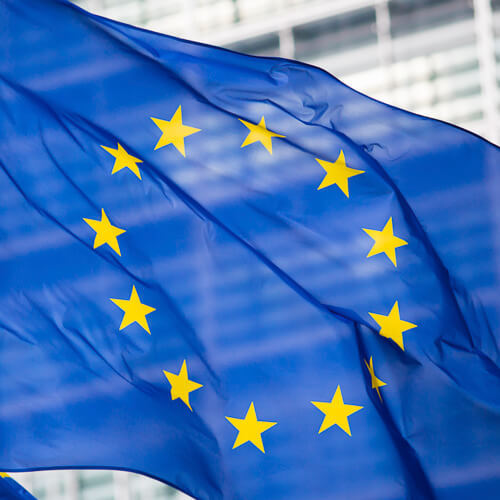Can't ETNO satisfaction in digital Europe
New report commissioned by European telco lobby group calls on regulators (again) to make the region more investment friendly; bemoans Eureope’s digital lag behind the US and South Korea.

The European Telecommunications Network Operators' Association (ETNO), a telecoms lobby group, has called on European policymakers (again) to encourage more investment in the region’s digital infrastructure.
An ETNO-commissioned report prepared by Analysys Mason – State of Digital Communications – wheeled out various and unflattering stats about Europe’s telecoms sector in the apparent hope it will stir Brussels into action.
Despite racking up a 5G- and FTTH-fuelled €52.5 billion in capex during 2020 – "the highest investment effort in four years" – the 100-odd page report finds that Europe’s telecoms sector is not as healthy as the US and parts of Asia.
Figure 1:  Give me more: A report commissioned by ETNO, a European telco lobby group, calls on regulators (again) to make the region more investment friendly.
Give me more: A report commissioned by ETNO, a European telco lobby group, calls on regulators (again) to make the region more investment friendly.
(Source: Andrey Kuzmin / Alamy Stock Photo)
One reason, says the study, is a comparative lack of investment. On a capex per capita basis, Europe clocks up €96.3, but it’s €191.9 in the US and €115.4 in South Korea.
FTTH may have passed more than 50% of European households for the first time in 2021, and the share of Europeans reached by 5G might even have doubled from 30% in 2020 to 62% in 2021 – and each is duly flagged as a "key milestone" by Analysys Mason – but the research firm pointedly adds that Europe is behind "all global peers" on a bunch of metrics. (Global peers, according to Analysys Mason, seem mainly to comprise the US and South Korea.)
The report pays particular attention to 5G. Despite being available to 62% of the population, 5G in Europe makes up only 2.8% of total mobile connections. In the US, the proportion is 13.4%. South Korea can apparently boast a 5G penetration rate of 29.3%.
A related worry for ETNO members is stubbornly low mobile average revenue per user (ARPU) levels, at least when compared to the US and South Korea. Mobile ARPU in Europe, finds the report, is €14.4 per month. That's well behind the US (€37.9) and South Korea (€25).
Europe is "suffering"
By flagging a number of "key financial indicators", Analysys Mason goes on to argue that the European telecoms sector is “suffering” and that policy wonks in Brussels should do something about it through "strong policy action to dramatically improve the investment climate" (ETNO's default position, it seems, for some time).
"The increase of telecom investment and the resilience of the sector are desirable from a societal viewpoint and they are key to Europe's 'Open Strategic Autonomy' plans," said the report.
In an attempt to alert policymakers, the report says the EV/EBITDA ratio of European telcos overall has fallen compared to the pre-pandemic period, and that net debt/EBITDA ratios have increased. It notes too that European telecom stocks have been "consistently underperforming" both the Stoxx Europe 600 index and the Stoxx Global 1800 telecoms index since Q1 2016.
Want to know more? Sign up to get our dedicated newsletters direct to
your inbox
Attention is also drawn to the familiar ETNO gripe of what it sees as an overly competitive and "fragmented" European market. There are 38 operating telecom groups in Europe, says the report, which vastly outnumbers the US (7), Japan (4) and South Korea (3).
Lise Fuhr, director general at ETNO, as reported by Reuters, indicated that Europe, despite the highest investment in years, has still got its regulatory work cut out to catch up with the US and South Korea.
"Our sector still suffers from highly regulated revenues: we need strong policy support for faster network rollout and for more consolidation," she said.
Related posts:
— Ken Wieland, contributing editor, special to Light Reading
Read more about:
EuropeAbout the Author(s)
You May Also Like


_International_Software_Products.jpeg?width=300&auto=webp&quality=80&disable=upscale)








